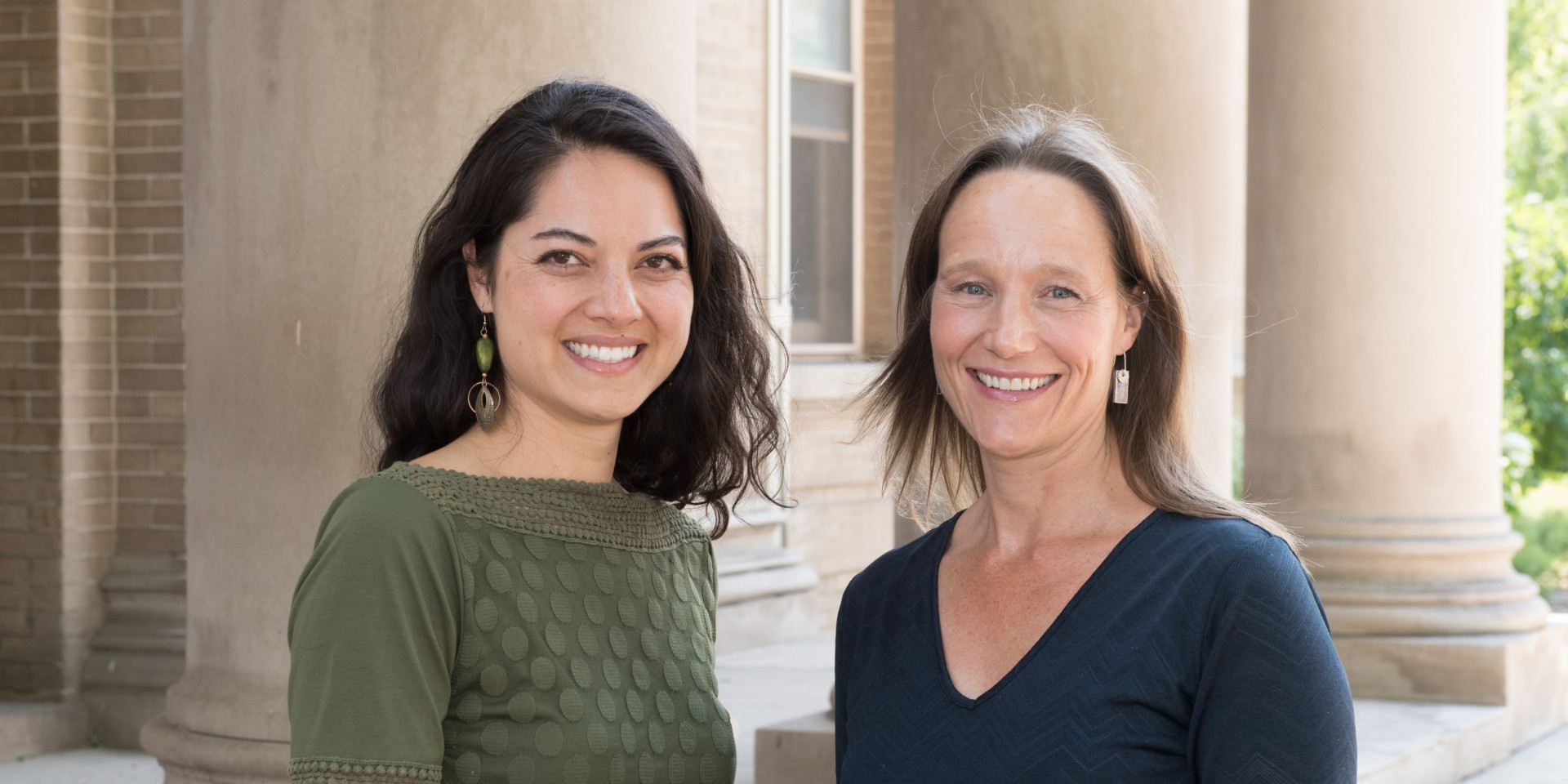
Cori Wong, left, and Kristina Quynn have both participated in the Academic Management Institute, which holds a session about diversity, inclusion and leadership for women in higher education on campus Jan. 25. Photo by John Eisele, CSU Photography
Only 30 percent of U.S. college and university presidents are female, according to the American Council on Education, based on data collected in 2016. This represents just a 4 percentage point increase since 2011, although women now earn the majority of all college degrees.
One reason for the disparity is the lack of women in senior leadership positions in higher education. To address this situation, ACE developed a network of state-based organizations dedicated to building capacity for advancement in women who aspire to leadership positions as well as within the institutions themselves.
Colorado State University has been part of the Academic Management Institute, the network that includes both Colorado and Wyoming, since its inception in the late 1970s. More than 1,000 women from 30 institutions have participated in AMI during its history.
For the past four years, the President’s Commission on Women and Gender Equity has funded four women from CSU to participate in the year-long AMI, attending four quarterly workshop sessions on different campuses between October and March, and completing a project designed to acquaint them with the administrative structure on their home campus.
The third session of the 2018-19 AMI will be held on the CSU campus on Jan. 25. Kristina Quynn, assistant professor in the Graduate School, who participated in AMI last year, is this year’s program director-elect. She said this session, called Pieces to Pictures, will focus on legal issues in higher education, diversity and inclusion, and leadership insights.
AMI attendees from CSU
Each year, CSU sends four participants to the year-long Academic Management Institute. For 2018-19, they are:
• Kinda Carpenter, Human Resources Associate Director, College of Veterinary Medicine and Biomedical Sciences
• Erin Patchett, Associate Director, Campus Recreation
• Anne Van Arsdall, Director of Summer Session Initiatives, Office of the Provost and Executive Vice President
• D. Tobiassen Baitinger, Senior Associate Registrar, Office of the Registrar
“If a policy is good for women, it’s usually good for the campus community as a whole,” said Quynn, who founded the CSU Writes program specifically to support all faculty, graduate student and postdoc writers in producing work that is critical to career advancement. CSU Writes got its start with a Ripple Effect grant to improve the working conditions for women at CSU.
“Recent research has found that most women faculty have more support at home than we assumed, but lack support on campus to have the time to produce the work,” she added. “The amount of their service on committees and the like is generally not recognized.”
Critical for career
Cori Wong, assistant vice president for gender equity at CSU, will present the opening address on Jan. 25, “Working to Support Each Other and Ways to Make Change.” She participated in AMI in 2014, and now coordinates CSU’s participation through her position in the Office of the Vice President for Diversity.
For her AMI project, Wong wrote a proposal to develop a campus-wide gender equity initiative that eventually evolved into the Women & Gender Collaborative, which she directs. She also interviewed a number of female campus leaders, including Vice President for Student Affairs Blanche Hughes, Vice President for Diversity Mary Ontiveros, Assistant Vice President for Student Affairs Kathy Sisneros, and Vice Provost for Undergraduate Affairs Kelly Long, as well as University Distinguished Teaching Scholar Stephanie Clemons.
“It was also helpful to connect with participants from other institutions of various types (private, community colleges) to learn more about differences across higher education and hear how people were navigating these different systems,” she said. “The experience strengthened by belief that women get much farther when they support, recognize, and encourage each other rather than compete against one another.”
One of her AMI sessions asked, “What would you ask if you had 15 minutes with your university president?”
“I wanted to ask about the motivation, vision, and expectations behind the President’s Women and Gender Initiative,” Wong recalled. “I requested 15 minutes with President Tony Frank to talk about it, and it turned into a very candid hour-long conversation. The fact that I was able to get in the room and have an honest conversation with President Frank was critical for my career.”
That’s the sort of difference AMI is designed to make for participants. Consider this: In 1986, the American Council on Education found only 10 percent of college presidents were female, compared to that 30 percent today. For perspective, only 5 percent of current CEOs at U.S.-based public companies are female, according to Pew Research.
One often-cited reason for women not being hired to lead universities is the traditionally male-dominated makeup of presidential selection bodies. The committee leading the current search for CSU’s next president has nine women among its 16 members, including a member of the Board of Governors, a university Vice President, and a University Distinguished Professor.